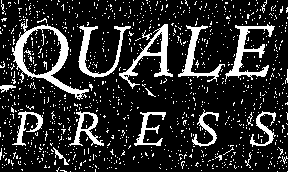| Pursuing the Dream Bone is a new collection of prose poetry from Morton Marcus. Reflecting on everything from the mundane to the sacred, Marcus explores issues of family, identity, loss, and the simple joys of everyday life. His style — by turns witty, poignant, and compassionate — remains fresh and accessible. More personal than his other prose poem books, Pursuing the Dream Bone continues Marcus’s parable-like examination of the human condition in pieces that are alternately antic, whimsical, somber and elegiac. As Al Young has said about Morton Marcus’s previous prose poems, “I couldn’t get enough of this delectable stuff, and there is nothing like it anywhere.”
“Morton Marcus writes in an idiom that is accessible to many and finely wrought, creating a texture remarkable for its lyrical range and mastery of metaphor... He is one of the most readable and moving poets of our generation.” —Charles Simic
“Marcus’s great gift is his ability to nudge us into imaginary worlds by enlarging our expectations of language and metaphor. Simply put, Marcus is writing some of the best prose poetry being published today. His sensibility and poetics have influenced, and will continue to influence, the next generation of prose poets and fabulators.” —Peter Johnson, Editor: The Prose Poem: An International Journal
“These eloquent prose poems [When People Could Fly] journey over a vast landscape of human experience, myth, folk tale, and family history. Larger than life, spinning through time and space with imaginative pyrotechnics and acute perception, the poems are entertaining, sobering, and above all, wise.” —Shirley Kaufman
“When People Could Fly possesses a humanity that is absent from most of the coldly abstract versions of surrealism produced by American poets, and for my part the collection eclipses most of the niggling prose poetry being turned out today. This generous-spirited book gives us a version of the world and strikes me as a major contribution to our lives and to our literature.” —Vern Rutsala
“With the publication of When People Could Fly, the prose poem found a wonderful godfather in Morton Marcus…” —Alan Cheuse, The Britannica Yearbook, 1997
“Musing over everything from math to Mussorgsky, the bible to the ‘Celestial Bakeshop,’ Marcus never errs in his vital retellings of our myths…like an erudite Mel Brooks playing Moses.” —Publishers Weekly
“Morton Marcus has become a surperb master of the prose poem….Often it’s the situation, the little storyline that captivates, the unimaginably tantalizing mini-stories, thumbnail histories, legends, pictures, myths, sketches, murals, and musicals….At other times, it is language, the physically affecting beauty of it, that sends a shiver up the spine….I couldn’t get enough of this delectable stuff, and there is nothing like it anywhere.” —Al Young
“Morton Marcus has been hailed as ‘one of America’s hidden literary treasures,’ ‘superb master’ and ‘marvelous godfather’ of the prose poem. What you have heard is true....From beginning to end, the book [Moments Without Names] stirs and enchants. For Marcus’s world is large, and he invites the reader to share in his wide-ranging knowledge of myth, history, literature, and philosophy.” —Rebecca Spears, Sentence
|
